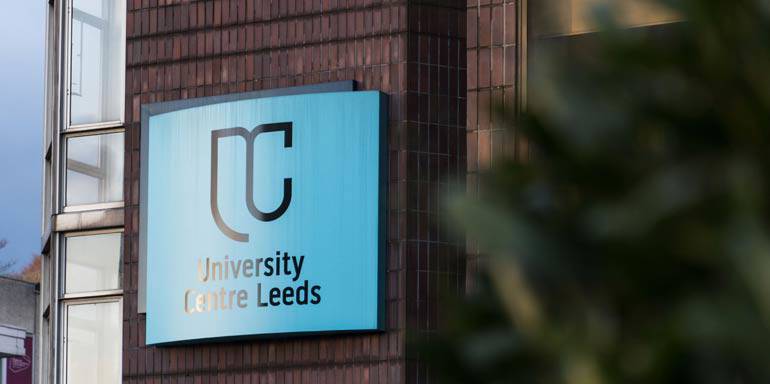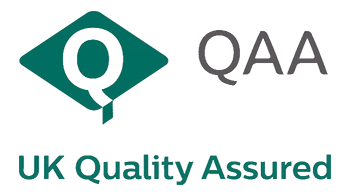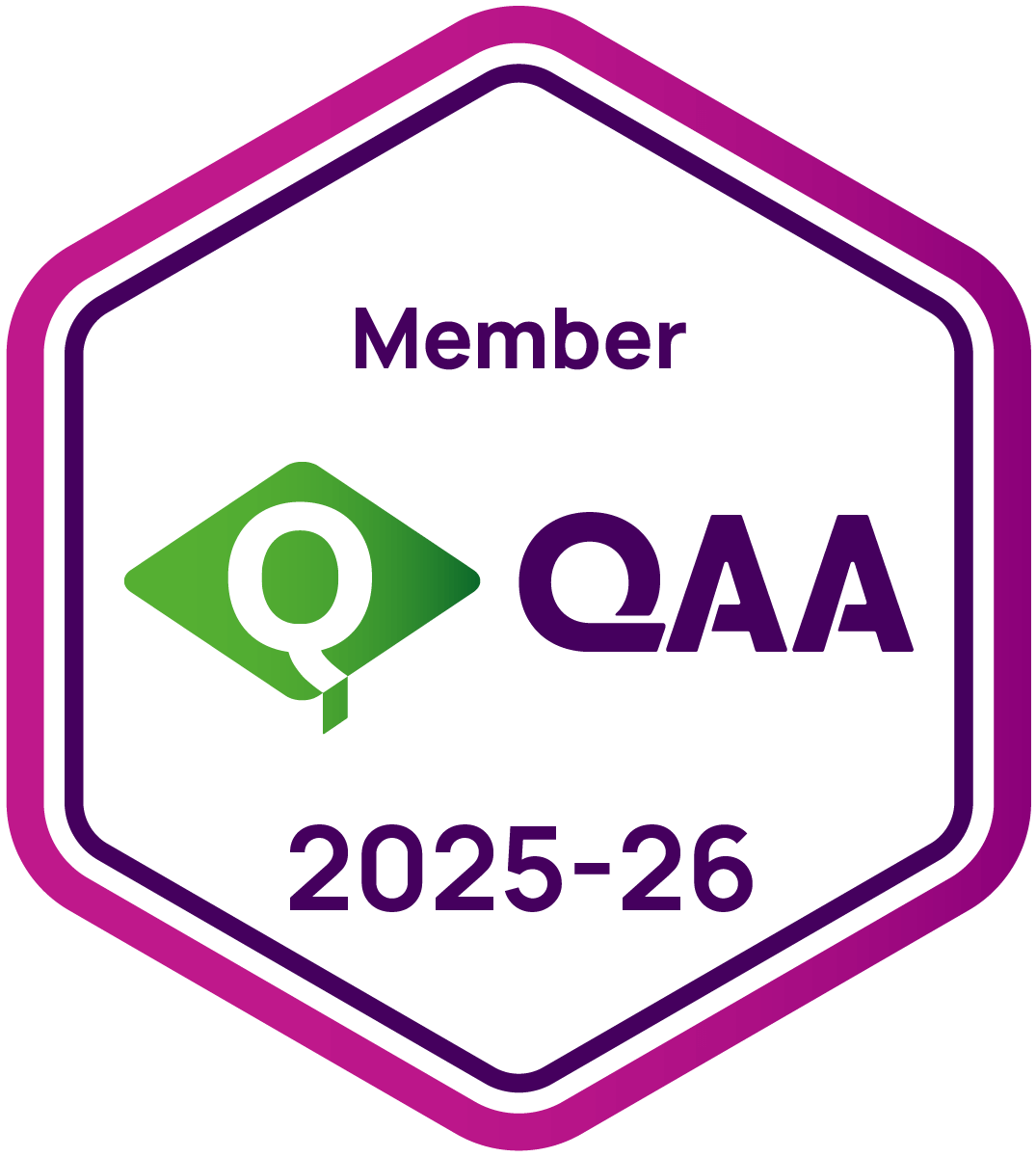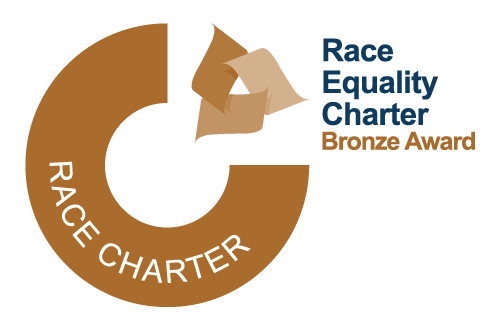University Centre Leeds is committed to providing a safe and inclusive environment, this includes ensuring that we have policies and procedures in place to handle reports of unacceptable conduct. Please click 'How to report?' for full guidance on both reporting an incident and how to access support.
All students receive training to ensure they understand behaviour that may constitute harassment and sexual misconduct. The Health and Wellbeing Team can also assist students affected by any incident to access appropriate support.

What is harassment?
Harassment includes any unwanted behaviour or conduct which intends to violate a person’s dignity, or create an intimidating, hostile, degrading, humiliating or offensive environment due to any of the following protected characteristics:
- Age
- Disability
- Gender reassignment
- Race
- Religion or belief
- Sex
- Sexual orientation
Harassment also includes:
- Incidents of physical violence towards a person due to a protected characteristic
- Hate crimes perceived to be motivated by hostility or prejudice
- Domestic violence and abuse (which involves control, coercion and threats), and stalking

What is sexual misconduct?
Sexual misconduct relates to all unwanted conduct of a sexual nature. This includes but is not limited to:
- Sexual Assault (e.g. groping or kissing without consent).
- Sharing or distributing intimate images without consent (revenge porn under the Criminal Justice and Courts Act 2015).
- Coercing or pressuring someone into sexual activity (including through manipulation or intimidation).
- Filming or photographing someone in a sexual way without consent (voyeurism, upskirting – criminal offences).
- Engaging in sexual activity with someone unable to give consent (due to intoxication, coercion, or other factors).
- Making sexual threats or blackmailing someone into sexual activity.
- Sexual exploitation or abuse of power (e.g. staff engaging in relationships with students where a power imbalance exists).
- Grooming or engaging in predatory sexual behaviour.
- Sexual harassment.
- Rape: Under the Sexual Offences Act 2003, rape occurs when a person (A) intentionally penetrates the vagina, anus or mouth of another person (B) with their penis, without B’s consent, and without any reasonable belief that B consents.
Harassment and sexual misconduct can happen through any medium, including online.
If you have experienced harassment or sexual misconduct of any kind, we are here for you and can provide you with the necessary support should you choose to report or disclose an incident to us.
Find out more on our Safeguarding Children and Adults Policy here.
Call it out
Our call it out campaign urges staff and students to call out any form of harassment or sexual misconduct.
‘Call it out’ aims to raise awareness of the help and support available if students face discrimination, prejudice, harassment, sexual misconduct or violence.
If you experience a situation that makes you feel uncomfortable, such as inappropriate, offensive or unwanted behaviour or comments, call it out.
Keep informed
Increase your awareness of unacceptable behaviour.
Report it
Speak to a trusted member of staff if you experience harassment.
Be an ally
Support those around you by standing up against any forms of harassment.
Access support
University Centre Leeds offers support to all students who have experienced harassment or sexual misconduct.
There are a number of charities and organisations that offer advice and support:
Practical information about reporting incidents and the police force in your area.
Citizens Advice provides information on what you can do if you or someone you know has experienced a hate incident or crime. These may occur due to prejudice or hostility based on a person’s disability, race, religion, sexual orientation or personal identity.
Rape Crisis England and Wales:
Rape Crisis helps you find your nearest Rape Crisis centre, as well as offering online emotional support and self-help tools.
NSPCC Abuse in Education helpline:
Provides victims of abuse with the appropriate support, advice and onward action, including on contacting professionals or the police if they wish.
TellMama offers a support service for people across England to report any form of anti-Muslim abuse.
Disability Rights UK: Disability:
Rights UK runs a dedicated helpline for students with disabilities. They also campaign to improve rights for those with disabilities and to tackle hostility, bullying and hate crime.
Community Security Trust (CST):
The CST charity aims to protect British Jews from any form of antisemitism.
Safeguarding and Reporting
Designated Safeguarding Team
If you are currently enrolled at the University Centre, you can report your experience to our Safeguarding team here – the information you provide will be dealt with in a sensitive and confidential manner.
If you are considering enrolling, or are a parent, carer or family member with a question or concern, please contact the safeguarding team here: [email protected]
- Andrew Ottey – Luminate Education Group designated safeguarding lead
- Graham Achilli-O’Brien – Designated Safeguarding Officer (University Centre Leeds) and (Leeds Conservatoire)
- Dave Tipple – Designated safeguarding officer (University Centre Leeds)
- Amanda Peace – Designated safeguarding officer (University Centre Leeds)
- Ollie Palmer- Stay Safe Office (University Centre Leeds)
Useful External Contacts
- If you require urgent support, please refer to our Crisis Support document.
- The Samaritans: 116 123 (free 24-hour helpline)
- National Domestic Abuse Helpline: 0808 2000 247 (free 24-hour helpline)
- SARSVL (Support after Rape and Sexual Violence Leeds): free phone 0808 802 3344
- Nightline: 0113 380 1381 (listening service for students 8:00pm – 8:00am)
- Leeds Housing Options: 0113 378 8366 (emergency out-of-hours)
- Adult Social Care Leeds: 0113 222 4401 (0113 378 0644 out-of-hours)
- Children’s Duty Team Leeds: 0113 376 0336 (0113 535 0600 emergencies)
- Police non-emergency: 101
In the event of an emergency, including serious risk to life, always call 999.
Prevent
Prevent is about safeguarding and supporting those vulnerable to radicalisation. Prevent is 1 of the 4 elements of CONTEST, the Government’s counter-terrorism strategy. It aims to stop people becoming terrorists or supporting terrorism (Let’s Talk About It).
What is radicalisation?
Radicalisation is the action or process of causing someone to adopt radical positions on political or social issues. Left unchecked, radicalisation can lead to people being drawn into terrorism or other dangerous situations.
What is extremism?
Extremism is the holding of extreme political or religious views. There are many different types of extremism and all can be dangerous when acted upon.
You should report a Prevent concern if you have reason to believe that someone is susceptible to radicalisation or is being radicalised or encouraged to support terrorism.
Prevent covers all forms of terrorism and extremism, including right wing terrorism, violent Islamist extremism, and emerging risks.
Please report any Prevent issues to [email protected].
Prevent Leeds is the local service for non-emergency referrals or suspicions of radicalisation.
Hate Crime
Leeds is generally a very safe and welcoming city and is home to a diverse range of people who have differing views. In rare cases, students might encounter hostility or prejudice because of their disability, race, religion or belief, gender identity or sexual orientation. The police, the local council and the conservatoire take reports of this very seriously.
Definitions
What is a Hate Crime?
A hate crime is any criminal offence which is perceived by the victim or any other person, to be motivated by hostility or prejudice based on a person’s disability, race, religion, sexual orientation or gender identity. Examples include:
- Physical attacks, such as physical assault, damage to property, offensive graffiti and arson.
- Threat of attack, such as offensive letters, abusive or obscene telephone calls, groups hanging around to intimidate, and unfounded malicious complaints.
What is a Hate Incident?
A hate incident is any incident (which may or may not constitute a criminal offence), which is perceived by the victim or any other person to be motivated by prejudice or hate towards a person’s disability, race, religion, sexual orientation or gender identity.
Examples include: Verbal abuse, insults or harassment, such as taunting, offensive leaflets and posters, abusive gestures, dumping of rubbish outside homes or through letterboxes, and bullying at school or in the workplace.
Report a Hate Crime or Hate Incident
As a victim or witness to a hate crime or incident, you can report your experiences in a variety of ways. If you’re reporting a crime that’s in progress or if someone is in immediate danger, please call 999. If the crime isn’t an emergency, call 101 or contact your local police station.
If you do not wish to contact the police directly, you can report hate crimes and incidents to Stop Hate UK, which is a charity that provides independent and confidential support to people affected by hate crime. Call their 24 hour helpline on 0800 1381625, or you can report online.
Hate Crime: A Guide for those affected
Stop Hate UK
Free dedicated 24-hour anti-Hate Crime helpline service.
We are committed to maintaining a safe and respectful environment for all members of our community and we take reports of any sort of unacceptable behaviour very seriously.
Reports will be investigated promptly and thoroughly in accordance with our disciplinary policy and procedures. Our goal is to provide a fair and transparent process for all parties involved.
We have put together some frequently asked questions that we hope will explain what to expect:
All parties – the reporting student, the reported student and any witnesses – can have someone sit in the interviews with them for support, but they can’t speak on your behalf. The accompanying person can be, for example, another student, a friend, a parent or other relative. They can also accompany you if you attend a disciplinary hearing, but again they can’t speak on your behalf.
See the Student Charter for more information.
University Centre Leeds (and other higher education institutions) refer to external, expert, guidance and requirements when putting together conduct and disciplinary policies and procedures:
- Pinsent Masons / Universities UK:
- Guidance For Higher Education Institutions – How To Handle Alleged Student Misconduct Which May Also Constitute A Criminal Offence.
- This is quite a long document (23 pages) but very clearly explains how higher education institutions should handle disciplinary cases which could also be a criminal offence.
- The Office of the Independent Adjudicator (OIA) (independent student complaints scheme for England and Wales):
- Office for Students (OfS):
At University Centre Leeds, we are committed to fostering a culture of safety, respect, and inclusion for all students and staff. Through dedicated training and support, we ensure our community is equipped to recognise, respond to, and prevent harassment, bullying, and sexual misconduct.
Student Training
All students receive training designed to:
- Understand what constitutes harassment and sexual misconduct
- Recognise the importance of consent
- Learn how to support peers and report concerns
This training is delivered through interactive content, real-world scenarios, and key guidance from the Office for Students (OfS). It empowers students to contribute to a respectful and inclusive environment both on and off campus.
Staff Training
We ensure all staff have the knowledge and confidence to:
- Identify behaviour that may constitute bullying, harassment, or sexual misconduct
- Report concerns appropriately
- Refer individuals for support when needed
Staff training takes place at the start of each academic year. In addition, our Student Support team receives specialist training to sensitively handle disclosures and provide informed support to students affected, directly or indirectly, by harassment or sexual misconduct.

Reporting an Incident
If you experience inappropriate behaviour of any kind from a student or staff member, you can report this to us through our incident reporting form. A member of the Quality team will be in touch to discuss further.
Reporting an Incident against a student
Reporting an Incident against a staff member









